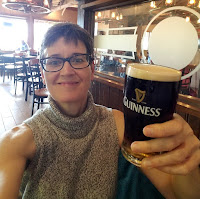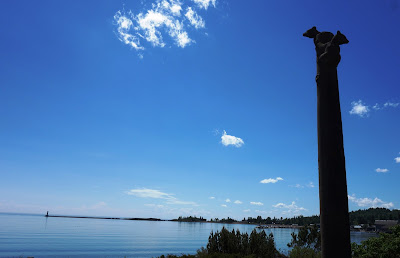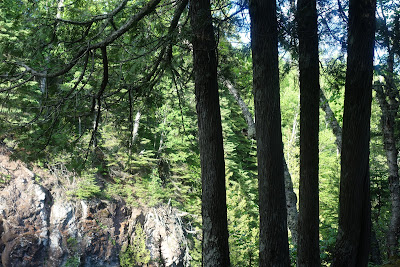For "music night" this evening at The Wild Reed, something very special: the legendary Petula Clark performing an interpretation of the Steve Winwood/Will Jennings classic "While You See a Chance."
Petula recorded a studio version of this song for her most recent album, 2016's From Now On, an album which, says AllMusic.com, sounds "mature but not dated or stiff, and reminds us [Petula's] still one of the most thoughtful and capable pop vocalists at work today."
That all being said, there's something very special about seeing Petula Clark as she sings with wisdom and grace the poignant lyrics of "When You See a Chance." And as I'm sure you'll agree, she sounds simply incredible at age 84!
A number of the tracks on From Now On, including "When You See a Chance," are all about looking forward and seizing the moment. Reviewing the album last year for Just Listen to This, Pete Sargeant noted that it "contains a number of new compositions by Clark as well as some interpretations." I like what Sargeant goes on to say about his use of the word "interpretations" in relation to Petula.
Indeed!
For more of Petula Clark at The Wild Reed, see:
• "Pure Class": Petula Clark's Latest Offering Captivates
• Happy Birthday, Petula
• Pet Sounds
• Well, Look Who's Coming to Port Macquarie . . .
• Petula Clark: Still Colouring Our World (which includes my mum's review of Petula's 2014 concert in Port Macquarie, Australia)
Related Off-site Links:
Petula Clark Delivers an Absorbing Slice of Pop History – James Hall (The Telegraph, October 16, 2016).
Petula Clark: Pop Icon Looks Back to the Future – Dustin Fitzharris (The Huffington Post, September 3, 2016).
"Being In Love at 83 is Crazy, Fantastic": Petula Clark on How She's Relishing Another Chance at Romance – Rebecca Hardy (The Daily Mail, September 2, 2016).
Petula Clark Exclusive: An Unprecedented Musical Journey Spanning Seven Decades – Ray Shasho (Classic Rock Here & Now, February 17, 2014).
Petula Clark’s Pop Comeback, at Age Eighty – The New Yorker, April 2, 2013).
Previous featured artists at The Wild Reed:
Dusty Springfield | David Bowie | Kate Bush | Maxwell | Buffy Sainte-Marie | Prince | Frank Ocean | Maria Callas | Loreena McKennitt | Rosanne Cash | Petula Clark | Wendy Matthews | Darren Hayes | Jenny Morris | Gil Scott-Heron | Shirley Bassey | Rufus Wainwright | Kiki Dee | Suede | Marianne Faithfull | Dionne Warwick | Sam Sparro | Wanda Jackson | Engelbert Humperdinck | Pink Floyd | The Church | Enrique Iglesias | Yvonne Elliman | Lenny Kravitz | Helen Reddy | Stephen Gately | Judith Durham | Nat King Cole | Emmylou Harris | Bobbie Gentry | Russell Elliot | BØRNS | Hozier | Enigma | Moby (featuring the Banks Brothers) | Cat Stevens | Chrissy Amphlett | Jon Stevens | Nada Surf | Tom Goss (featuring Matt Alber) | Autoheart | Scissor Sisters | Mavis Staples | Claude Chalhoub | Cass Elliot | Duffy | The Cruel Sea | Wall of Voodoo | Loretta Lynn and Jack White | Foo Fighters | 1927 | Kate Ceberano | Tee Set | Joan Baez | Wet, Wet, Wet | Stephen “Tin Tin” Duffy | Fleetwood Mac | Jane Clifton | Australian Crawl | Pet Shop Boys | Marty Rhone | Josef Salvat | Kiki Dee and Carmelo Luggeri | Aquilo | Tony Enos
Petula recorded a studio version of this song for her most recent album, 2016's From Now On, an album which, says AllMusic.com, sounds "mature but not dated or stiff, and reminds us [Petula's] still one of the most thoughtful and capable pop vocalists at work today."
That all being said, there's something very special about seeing Petula Clark as she sings with wisdom and grace the poignant lyrics of "When You See a Chance." And as I'm sure you'll agree, she sounds simply incredible at age 84!
A number of the tracks on From Now On, including "When You See a Chance," are all about looking forward and seizing the moment. Reviewing the album last year for Just Listen to This, Pete Sargeant noted that it "contains a number of new compositions by Clark as well as some interpretations." I like what Sargeant goes on to say about his use of the word "interpretations" in relation to Petula.
I use that word because "cover" is not what Petula Clark does, any more than Tony Bennett or Miles Davis ever do or did. To get inside a song and do something fresh with it is a skill a relative few artists evolve to. Hendrix did at a young age with Drifter’s "Escape" and "All Along The WatchTower," of course.
What marks Petula Clark out as a creator is the international element to her work and moreover her style. She can make you believe in a dilemma or share a happy notion, much as a fine actor will do. Acting in films and on stage has clearly helped hone her art and subtle delivery. She sings for us, not at us.
Indeed!
For more of Petula Clark at The Wild Reed, see:
• "Pure Class": Petula Clark's Latest Offering Captivates
• Happy Birthday, Petula
• Pet Sounds
• Well, Look Who's Coming to Port Macquarie . . .
• Petula Clark: Still Colouring Our World (which includes my mum's review of Petula's 2014 concert in Port Macquarie, Australia)
Related Off-site Links:
Petula Clark Delivers an Absorbing Slice of Pop History – James Hall (The Telegraph, October 16, 2016).
Petula Clark: Pop Icon Looks Back to the Future – Dustin Fitzharris (The Huffington Post, September 3, 2016).
"Being In Love at 83 is Crazy, Fantastic": Petula Clark on How She's Relishing Another Chance at Romance – Rebecca Hardy (The Daily Mail, September 2, 2016).
Petula Clark Exclusive: An Unprecedented Musical Journey Spanning Seven Decades – Ray Shasho (Classic Rock Here & Now, February 17, 2014).
Petula Clark’s Pop Comeback, at Age Eighty – The New Yorker, April 2, 2013).
Previous featured artists at The Wild Reed:
Dusty Springfield | David Bowie | Kate Bush | Maxwell | Buffy Sainte-Marie | Prince | Frank Ocean | Maria Callas | Loreena McKennitt | Rosanne Cash | Petula Clark | Wendy Matthews | Darren Hayes | Jenny Morris | Gil Scott-Heron | Shirley Bassey | Rufus Wainwright | Kiki Dee | Suede | Marianne Faithfull | Dionne Warwick | Sam Sparro | Wanda Jackson | Engelbert Humperdinck | Pink Floyd | The Church | Enrique Iglesias | Yvonne Elliman | Lenny Kravitz | Helen Reddy | Stephen Gately | Judith Durham | Nat King Cole | Emmylou Harris | Bobbie Gentry | Russell Elliot | BØRNS | Hozier | Enigma | Moby (featuring the Banks Brothers) | Cat Stevens | Chrissy Amphlett | Jon Stevens | Nada Surf | Tom Goss (featuring Matt Alber) | Autoheart | Scissor Sisters | Mavis Staples | Claude Chalhoub | Cass Elliot | Duffy | The Cruel Sea | Wall of Voodoo | Loretta Lynn and Jack White | Foo Fighters | 1927 | Kate Ceberano | Tee Set | Joan Baez | Wet, Wet, Wet | Stephen “Tin Tin” Duffy | Fleetwood Mac | Jane Clifton | Australian Crawl | Pet Shop Boys | Marty Rhone | Josef Salvat | Kiki Dee and Carmelo Luggeri | Aquilo | Tony Enos






































































